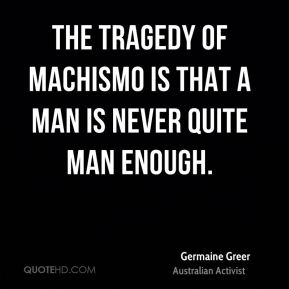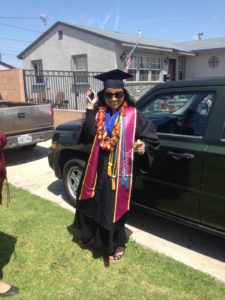
Upon watching the film Real Women Have Curves (Cardoso, 2002), I captured the interlocking systems of oppression (sexism and classism) that many Chicanas are subjected to in relation to the Chicana/o Family Structure and dominant society. The film cast characters that fulfill the stereotypical Chicana/o family structure with the Male at the center of “la familia,” and Chicanas relegated to domesticity and menial occupations, something that Rodriguez discusses when he touches on Hollywood’s portrayal of Chicana/os in films. However, in this film, the producer decided to show Anna, the youngest daughter of the two, challenging and “Shooting the Patriarchy” that Rodriguez talks about in his book Next of Kin: The Family in Chicano/a Cultural Politics. In short, Anna does not intend on fulfilling constructed traditional female gender roles that reinforce this idea of patriarchy. My film review will focus on three segments of the film that capture Chicanas multi-faceted challenges directly associated with sexism, classism, and sexuality.
The first segment of the film that I will focus on is sexism and female gender roles and expectations. The beginning of the film captures Anna’s mom lying in bed sick. Anna’s mom expects her to miss the last day of school because she needs to attend to her duties, which consist of “cooking breakfast for the males.” Because Anna is the daughter, a female, she is expected to take on the role of her mother. Here, we capture the sexist ideologies that relegate women to domesticity- a role that Chicanas/Mexicans are expected to take on in the Chicana/o family. However, Anna challenges the patriarchal sexist ideology and stands up to her mother. Here, the producer of the film captures the negotiation process that Chicanas go though when challenging traditional gender roles that reinforce patriarchy. In a typical Chicana/o/Mexicana/o family structure, young adolescent girls find it difficult to stand up to “la familia” so they reinforce the expected sociocultural values and traditions. But, not Anna, she reflects a strong willed Chicana who crosses borders stepping into territories that “la familia” would never expect.
The next segment of the film that I will focus on is Anna’s constant negotiation to survive her family’s class position. In the film, Anna is expected to “work” to help “la familia” instead of pursuing her college education. Anna works without pay, even realizing Bloomingdales exploitation of their labor. Here, Anna challenges the capitalistic structure of our society by confronting the people who contract their work. Anna, who is expected to be passive and docile due to her gender (female), takes agency, crossing borders that some Chicanas would never imagine crossing. She speaks up to a person in a position of power addressing the exploitation happening in the factory-something Chicanas are not expected to do. Her sister, Estella, on the other hand, plays the submissive role, something Chicanas are suppose to do, especially when it comes to challenging their bosses in the workplace. Anna’s heavy conscious does not allow her to ignore the injustices happening and seeks socioeconomic justice for the family and workers at the factory. Like Rodriguez, in Chapter 2 of Next of Kin: The Family in Chicano, Anna “Shoots the Patriarchy” challenging the classism, and the capitalistic nature of our society.
The last segment of the film that I focus on reveals Anna embracing the “brown body” and her sexuality, something Chicanas are forbidden to do. She takes agency over her life when it comes to her sexuality crossing borders that she is not suppose to. She challenges the sociocultural traditions and the notion that young Chicanas must be virgins until they marry. She even dates a White boy, something that is not widely accepted in Chicana/o families. So, we also the intersection of race that plays out in the film. But, in the midst of taking agency over her sexuality, her mother condemns her and calls her a “puta,” even slapping her across the face.
Through these different segments of the film, we capture the interlocking systems of oppression rooted in patriarchy that Anna encounters in relation to the Chicana/o family and dominant society. However, the filmmakers change the trajectory, and end the film with Anna putting herself first, not fulfilling stereotypical gender roles that she is expected to fulfill in the Chicana/o family structure. Anna aspires to pursue her college education at Columbia, one of the top universities in the nation, she does not let the patriarchal structure of “la famlia” and society dictate her destiny- she “Shoots the Patriarch”-Pow Pow, another Chicana off to college!!!!!!!!!
One thing I liked about the film is that it captures so many different layers of the Chicana experience, both the tradional aspects of what Chicanas are suppose to aspire to, and the more contemporary Chicana who challenges the gender expectations and patriarchy. It’s evident that the film industry has made progress, creating spaces for Chicana filmmakers (this film was created by women of color), something that wasn’t widely accepted when Noriega wrote his piece on “Imagined Borders: Locating Chicano Cinema in America/America.” In that chapter, Noriega maps out the origins of Chicano media, which definitely, in the beginning, was very gendered. We have made some progress, YAAAAAYYYYY- “Shoot the Patriarchy,” for the gazaliionth time LOL


